Unlocking the Mysteries of Varanasi: India’s Spiritual Hub
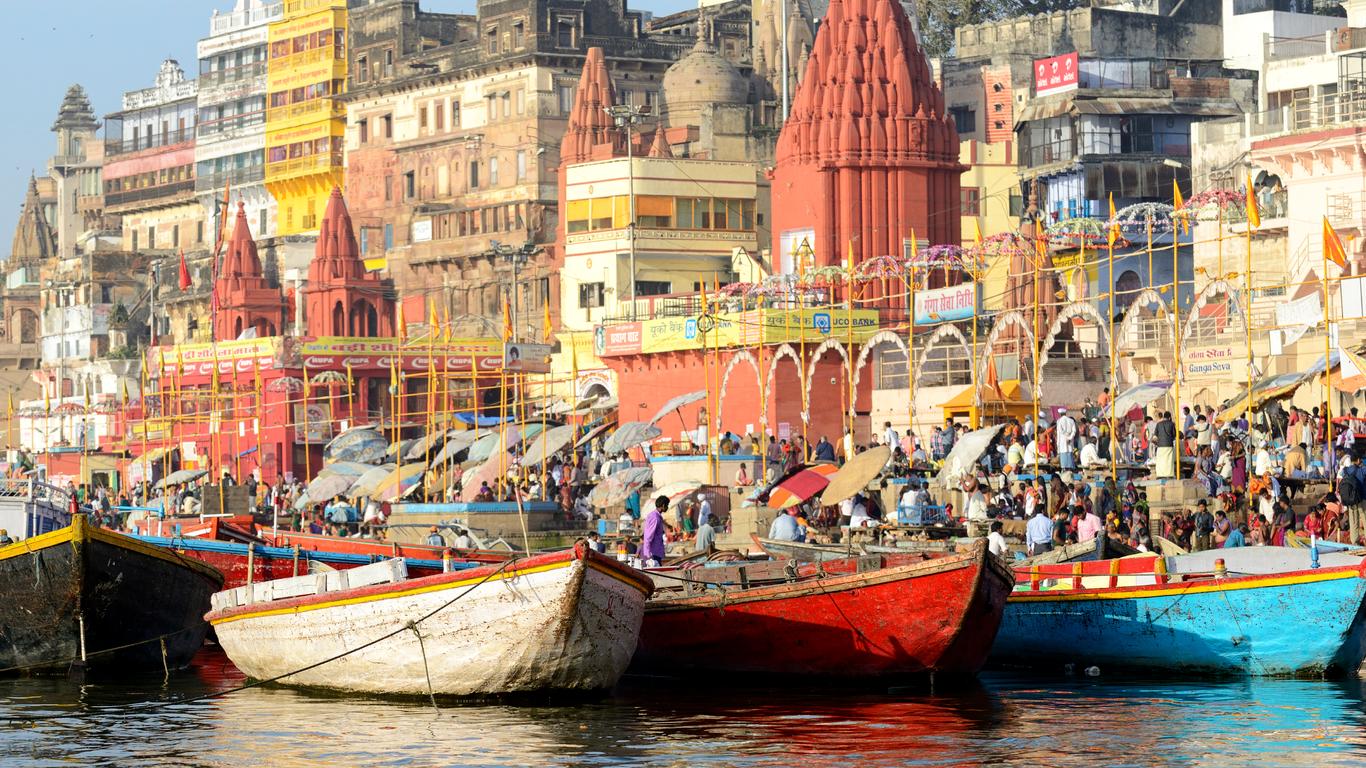
Introduction
Overview of Varanasi
Varanasi, one of the oldest inhabited cities in the world, is a mesmerizing tapestry of spirituality and culture. Nestled on the banks of the sacred Ganges River, its labyrinthine alleys are alive with the whispers of history and the vibrant chaos of daily life. From the iconic ghats to the intricate temples, Varanasi offers an experience like no other.
Significance of Varanasi in Indian culture
In Indian culture, Varanasi is more than just a city; it represents the heart of Hindu spirituality. Here are some facets of its significance:
- Spiritual Hub : A pilgrimage destination for millions seeking enlightenment and liberation.
- Cultural Wealth : An epicenter of arts, music, and philosophy reflecting a rich heritage.
- Traditions : Home to ancient rituals that celebrate life, death, and rebirth, drawing visitors into its magical embrace.
Personal accounts of visitors often reflect transformative experiences, as Varanasi’s atmosphere fosters a unique connection to the divine.

Historical Background
Ancient history of Varanasi
The ancient history of Varanasi is steeped in legend and myth, believed to be over 3,000 years old. It was once known as Kashi, a city of light, and has been referenced in sacred texts like the Rigveda. The remnants of temples and palaces reflect a glorious past enriched by:
- Cultural Exchanges : A melting pot of ideas from various civilizations.
- Trade and Commerce : Flourishing markets that contributed to its wealth and influence.
Evolution of Varanasi as a spiritual center
Over the centuries, Varanasi evolved into a spiritual beacon in India. Pilgrims flock here for rituals, making it the epicenter of Hindu worship.
- Rise of Temples : From ancient shrines to grand temples, each reflects the city’s devotion to deities.
- Philosophical Hub : Attracting scholars and saints, Varanasi became a center for teachings on life and spirituality.
Visitors often share stories of enlightenment and profound connection as they walk the same paths tread by sages for millennia, reinforcing Varanasi’s timeless allure.
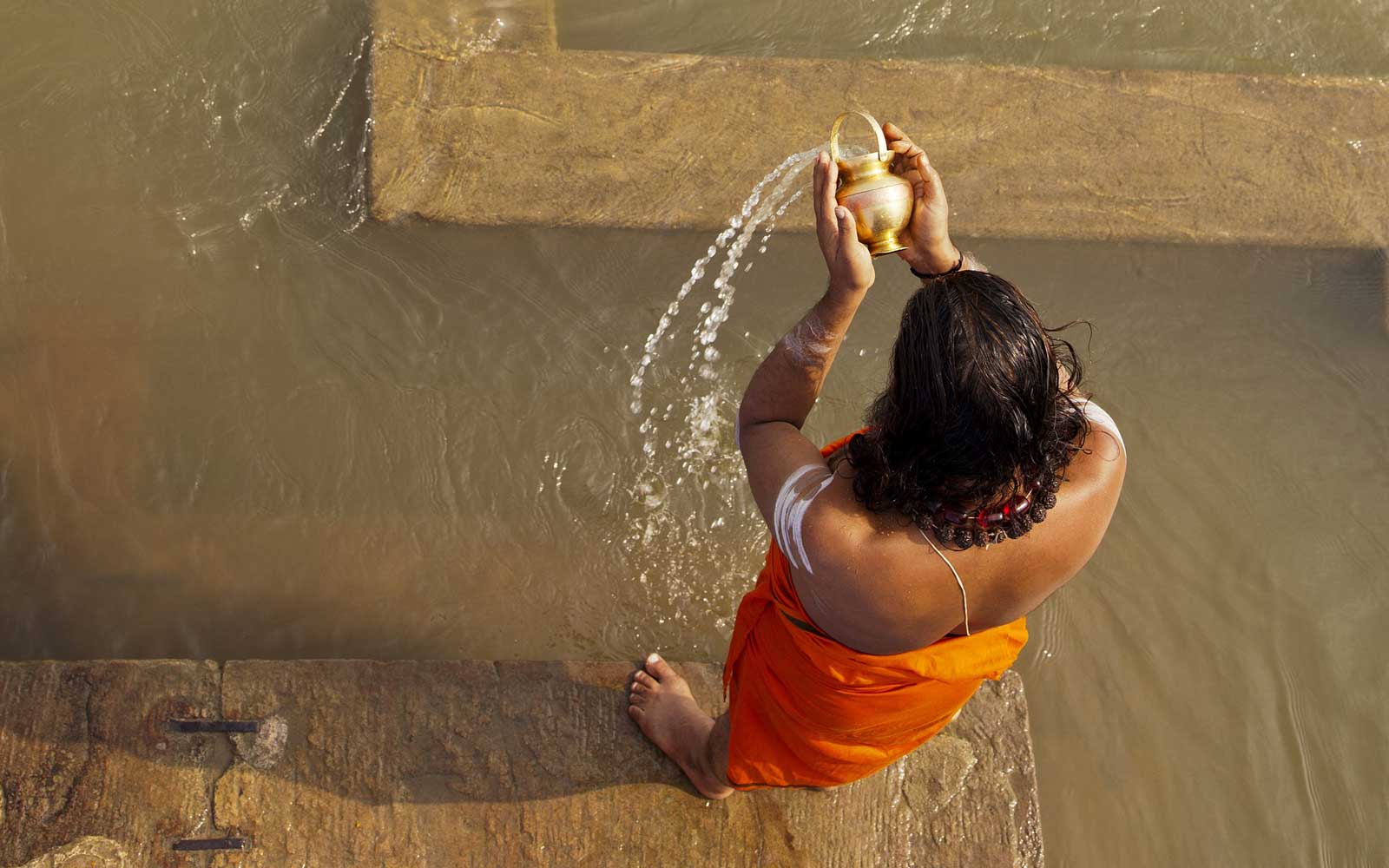
Religious Significance
Hindu beliefs and practices in Varanasi
In Varanasi, Hindu beliefs thrive vibrantly, serving as the lifeblood of the city. This sacred ground resonates with practices rooted deeply in tradition:
- Daily Rituals : Morning prayers and offerings at the ghats create a magical ambiance.
- Life-Cycle Ceremonies : Important rites such as weddings and cremations take place here, signifying life’s cyclical nature.
Visitors often remark on the profound sense of community and spirituality during these ceremonies, enhancing their understanding of Hindu culture.
Importance of the Ganges River in Varanasi
The Ganges River, or Ganga, is revered not just as a river but as the personification of the goddess Ganga herself. Its significance in Varanasi is paramount:
- Purification : Hindus believe bathing in the Ganges washes away sins and offers spiritual renewal.
- Cremation Ghats : Many seek to have their final rites performed along its banks to attain moksha (liberation from the cycle of rebirth).
Experiencing the serenity of a sunrise on the Ganges can leave an indelible mark on visitors, often evoking a profound sense of peace and reflection.
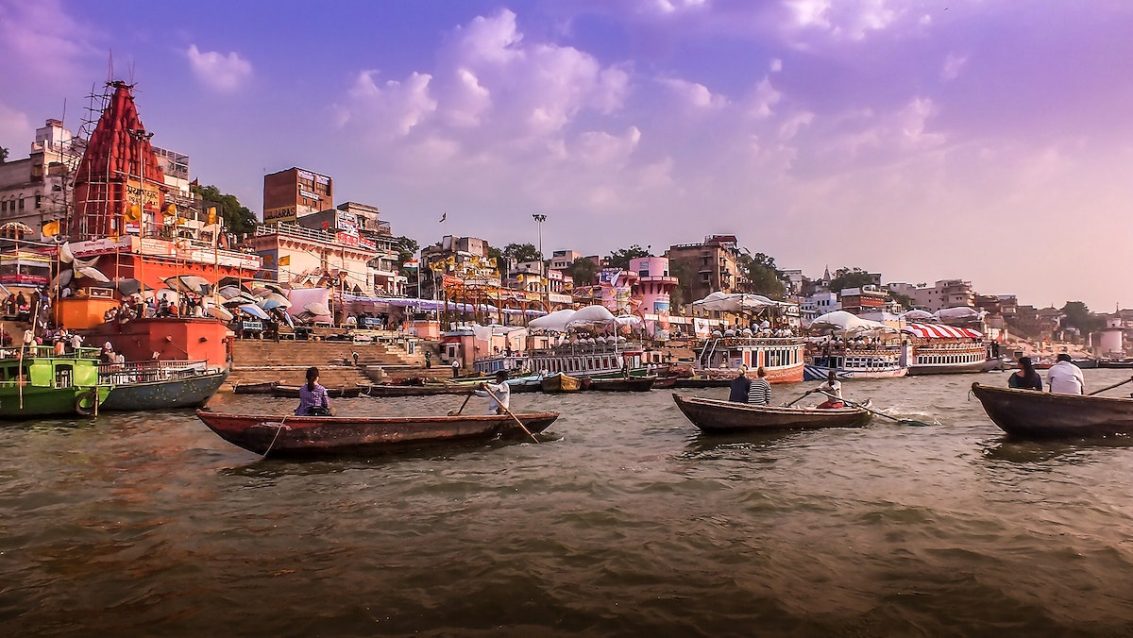
Varanasi’s Spiritual Practices
Rituals and ceremonies in Varanasi
Varanasi is a vibrant tapestry of rituals and ceremonies that reflect its rich spiritual heritage. Daily life pulsates with activities such as:
- Ganga Aarti : A mesmerizing evening ceremony where priests perform rituals with fire, honoring the Ganges.
- Morning Puja : Devotees gather at dawn for worship and prayer, welcoming a new day with gratitude.
Witnessing these ceremonies can be transformative; visitors often share how they felt a deep spiritual connection to their surroundings.
Impact of spirituality on visitors
The powerful spirituality of Varanasi leaves a lasting impression on many who arrive seeking peace and insight.
- Emotional Resonance : Many travelers express feelings of introspection and connection to something much greater than themselves.
- Cultural Enlightenment : Engaging with local practices offers unique insights into Hindu philosophy and traditions.
Many leave transformed, carrying Varanasi’s spiritual essence long after they’ve departed, shared in stories and memories that evoke the city’s ethereal charm.
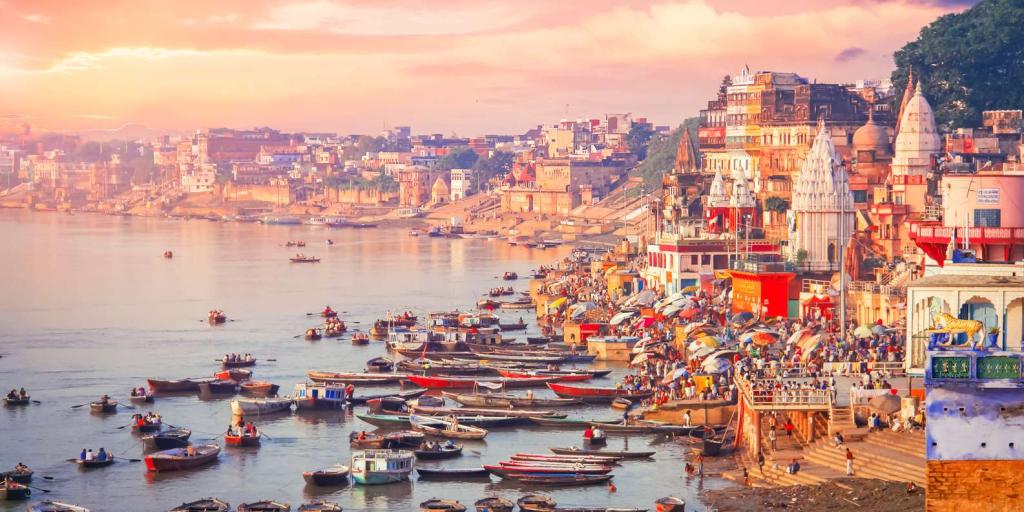
Varanasi’s Cultural Heritage
Art and music in Varanasi
The cultural heritage of Varanasi is intertwined with its artistic and musical traditions, creating an atmosphere filled with creativity and expression. The city is renowned for:
- Classical Music : Varanasi is the birthplace of the revered Banaras gharana, attracting musicians and lovers of Indian classical music.
- Artisans : From intricate paintings to vibrant textiles, local artists showcase their skills, often drawing inspiration from the city’s spiritual framework.
Visitors often find themselves deeply moved by impromptu musical performances in the streets, showcasing the city’s artistic soul.
Traditional crafts of Varanasi
The crafts of Varanasi are equally impressive, preserving techniques passed down through generations:
- Banarasi Silk Sarees : Known globally, these exquisite sarees embody intricate weaving techniques and stunning designs.
- Brass and Copper Craft : Artisans create beautiful utensils and religious artifacts, adding to the cultural richness.
Travelers often engage directly with artisans, gaining insight into their craftsmanship. These experiences not only enrich visitors’ understanding but also foster a personal connection to the vibrant culture of Varanasi.

Introduction
Welcome to Varanasi
Nestled along the banks of the sacred Ganges River, Varanasi, one of the oldest inhabited cities in the world, draws millions of visitors each year. This city is not just a destination; it is an experience that intertwines spirituality with vibrant culture.
- Rich Traditions
- Ancient Rituals
- Breathtaking Ghats
Imagine strolling along the ghats at dawn, witnessing the ethereal beauty of the sun rising over the river. Varanasi offers unparalleled insights into India’s spiritual heart, with every corner echoing the stories of its rich past.
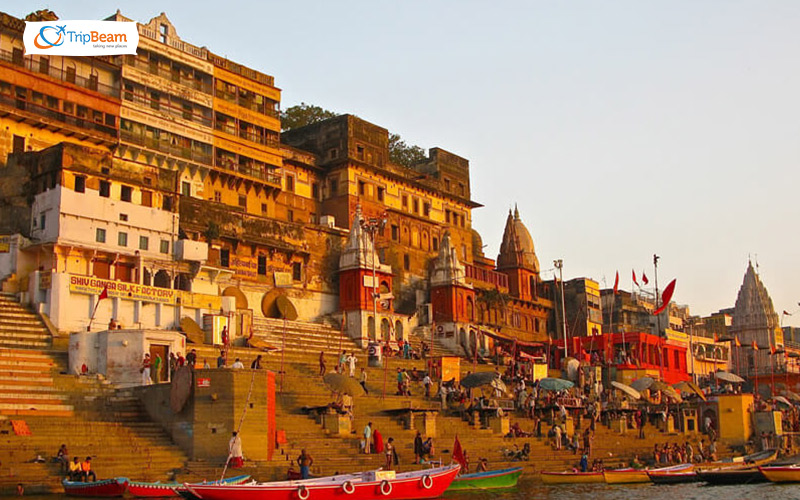
Historical Background
A Journey Through Time
Varanasi’s historical roots stretch back over 3,000 years, making it one of the oldest cities in the world. This ancient city, known as Kashi, has been a significant center for spirituality and learning.
- Early Civilization : Evidence suggests Varanasi was a hub of trade and culture.
- Cultural Melting Pot : It has welcomed diverse spiritual practices over centuries.
Walking through its narrow lanes, one can almost feel the pulse of history, from the Mauryan era to the Mughal period, shaping its unique identity. Each monument and temple whispers tales of a glorious past, inviting visitors to explore its profound legacy.
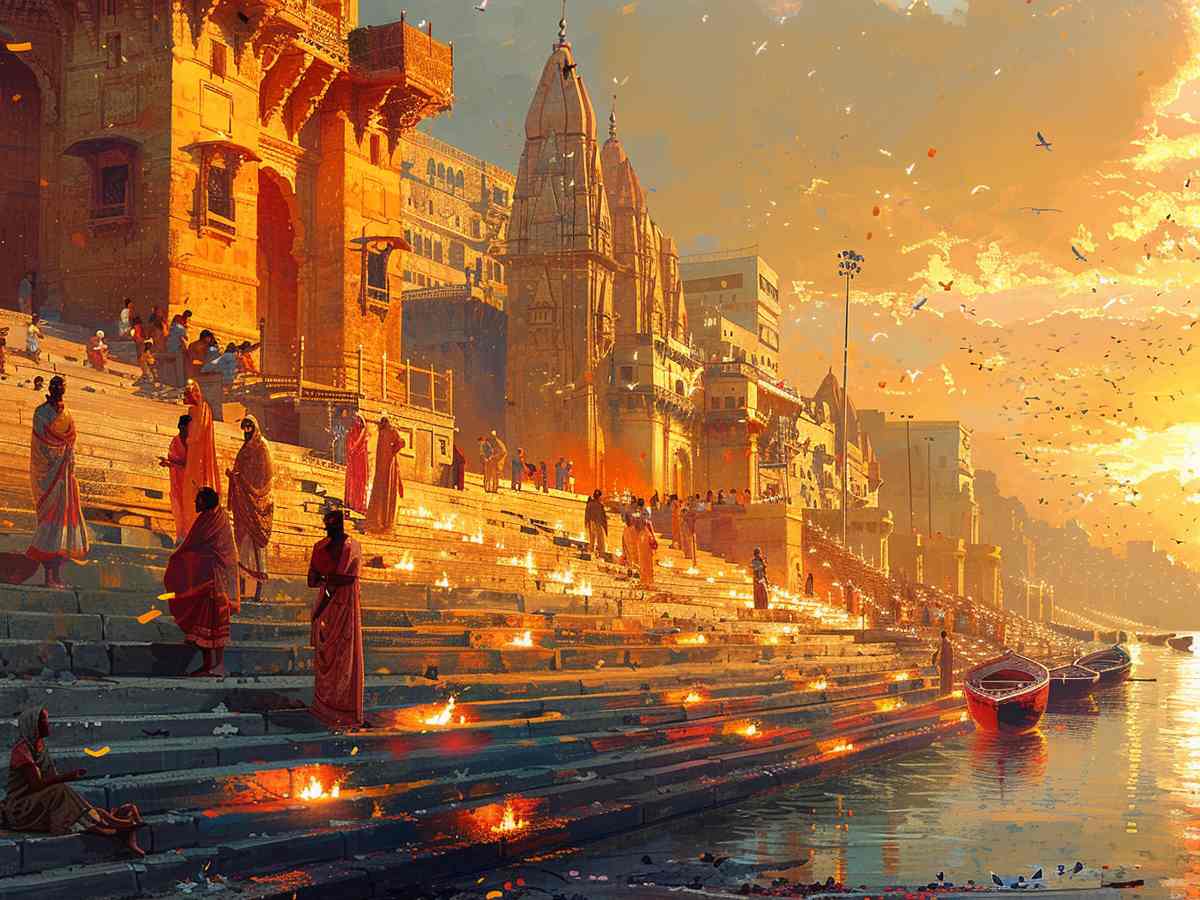
Religious Significance
The Sacred Heart of India
Varanasi is often referred to as the spiritual capital of India, holding immense religious significance for millions. This city is believed to be the birthplace of several major faiths, especially Hinduism.
- Ganges River : Considered the holiest river, it is believed to cleanse sins.
- Temples Galore : Home to over 2,000 temples, including the famous Kashi Vishwanath Temple.
For many pilgrims, a visit to Varanasi is a fulfilling spiritual journey. Personal stories often recount the transformative experience of performing rituals along the ghats, bridging the gap between life and the eternal.




